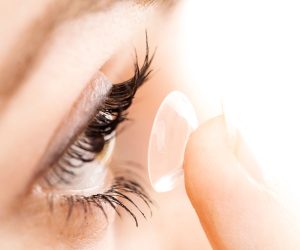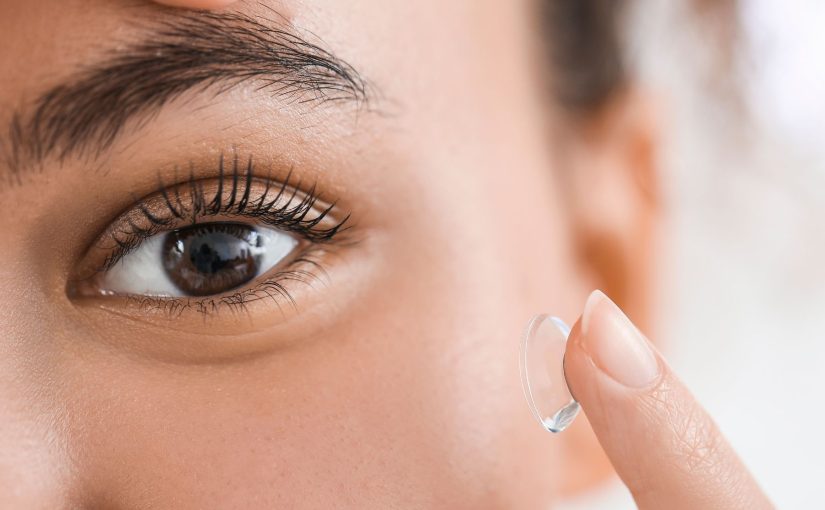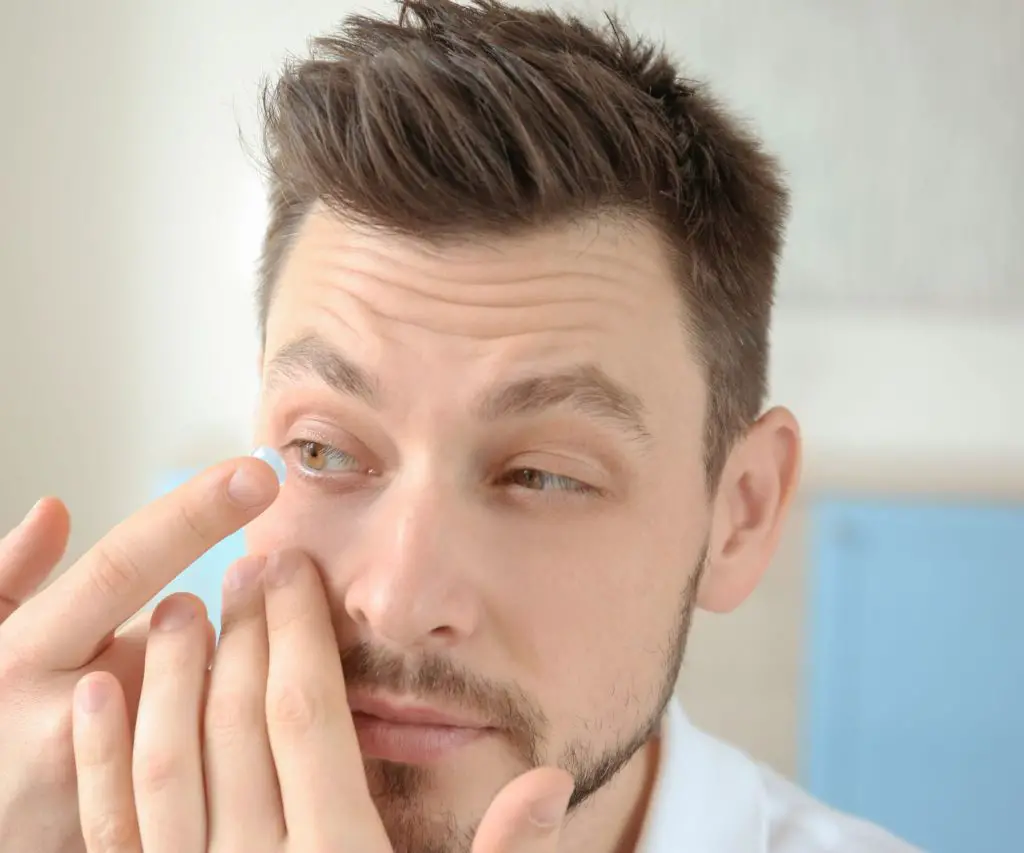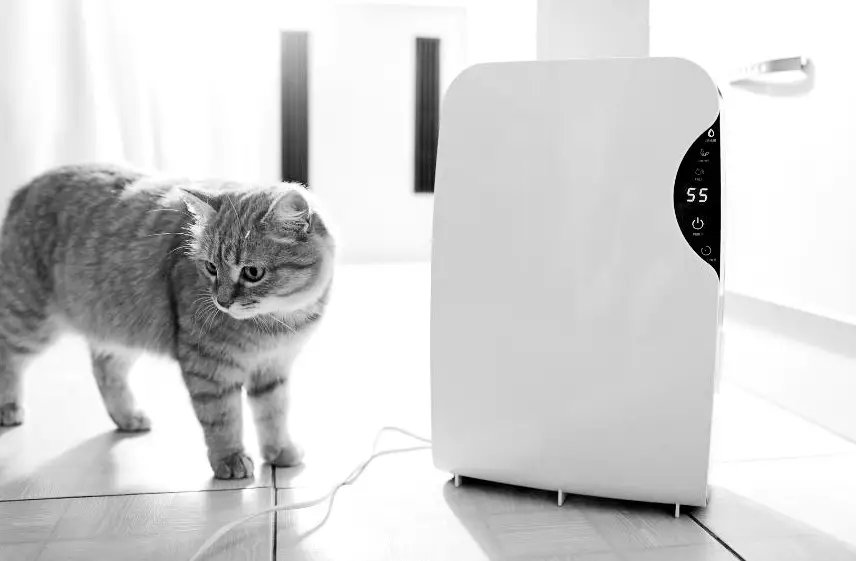Table of Contents
Can a Humidifier Help with Dry Eyes from Wearing Contact Lenses?
 Yes, using a humidifier can help relieve dry eyes caused by wearing contact lenses.
Yes, using a humidifier can help relieve dry eyes caused by wearing contact lenses.
Dry eyes are commonly experienced by contact lens users due to lack of sufficient moisture on the surface of the eyes. Humidifiers add moisture back into the air, helping to prevent eyes from drying out and becoming irritated during contact lens wear.
Maintaining proper indoor humidity levels between 40-50% is ideal for contact lens wearers prone to discomfort from dryness.
Understanding Dry Eyes in Contact Lens Wearers
Dry eye syndrome, also known as dry eye disease, is a condition that occurs when the eyes do not produce enough quality tears to remain lubricated. Tears help to keep the surface of the eyes moist and comfortable. When tear quantity or quality is reduced, it can lead to dry, irritated eyes.
Some common causes and risk factors for dry eyes include:
- Age – Tear production tends to diminish as we get older
- Gender – Women are more likely to experience dry eyes due to hormonal changes
- Medications – Antihistamines, decongestants, blood pressure medications, etc. can reduce tear production
- Health conditions – Such as rheumatoid arthritis, lupus, diabetes, thyroid issues
- Environment – Dry, windy weather conditions can accelerate moisture evaporation from eyes
- Contact lens wear – Lenses absorb tears and cause increased evaporation
- Screen usage – Reduced blinking from staring at screens leads to tear film instability
Contact lens wearers have an especially high prevalence of dry eye issues. This is because contact lenses sit directly on the surface of the eyes, interfering with normal tear film distribution.
Lenses absorb moisture from the eyes. Blinking less frequently while focusing on tasks when wearing contacts also exacerbates dryness. Even those who produce sufficient tears may develop irritation from lenses wicking moisture away.
Symptoms of Dry Eyes with Contact Lenses
Common symptoms of dry eyes experienced by contact lens users include:
- Itching, burning, stinging sensation in eyes
- Redness and inflammation of eyes or eyelids
- Feeling of irritation or having something in the eyes
- Excessive blinking or rubbing of the eyes
- Watery eyes as reflex tears are produced
- Blurry vision that fluctuates throughout the day
- Mucous discharge or crusting around the eyes
- Increased sensitivity to smoke, wind, or sunlight
These symptoms may be more pronounced towards the end of the day as moisture loss accumulates during lens wear. Dry eyes can make it very difficult to comfortably wear contact lenses for long periods.
How Can a Humidifier Help Contact Lens Dry Eye?
Using a humidifier is an effective way to help prevent dry, irritated eyes caused by wearing contact lenses. Here’s how it works:
- Humidifiers increase moisture in the air. Dry indoor air exacerbates tear evaporation and dry eye symptoms. Boosting humidity helps replenish moisture on the surface of eyes.
- Proper humidity levels (40-50%) can help eyes stay lubricated longer when wearing lenses. This makes for more comfortable wear time.
- Added moisture decreases irritation and discomfort from lenses wicking moisture away from the eyes.
- Humidifiers can help relieve inflammation and redness of dry eyes aggravated by contact lens wear.
- More moisture and reducing dryness provides clearer, sharper vision for lens wearers without blurriness.
Maintaining indoor relative humidity levels between 40-50% is recommended for contact lens users struggling with dryness. This helps prevent tear film instability without getting too humid.
Tips for Using a Humidifier to Relieve Dry Contact Lens Eyes
To maximize the benefits of using a humidifier for contact lens-related dry eye:
- Choose a cool mist humidifier since warm mist breeds bacteria more easily.
- Select a humidifier with a large tank capacity so it doesn’t need constant refilling.
- Use distilled or filtered water to prevent mineral deposits from getting into the air.
- Clean the humidifier regularly according to manufacturer instructions.
- Place the humidifier in bedrooms or rooms where many hours are spent.
- Keep humidifier at least 2 feet from walls to allow moisture to circulate properly.
- Monitor humidity with a hygrometer and keep levels between 40-50%.
- Combine humidifier use with artificial tear drops for added dry eye relief.
Properly caring for the humidifier and using distilled water will help prevent white dust or dispersing contaminants into the air that could further aggravate eyes.
Portable humidifiers can also be brought to work or on trips when wearing contact lenses away from home for convenience.
 Seeing an Eye Doctor for Ongoing Dryness Issues
Seeing an Eye Doctor for Ongoing Dryness Issues
If symptoms of dryness and eye irritation persist even with consistent humidifier use, make an appointment with an eye doctor or ophthalmologist.
An eye exam can check for any underlying conditions contributing to dry eyes such as:
- Blepharitis – Inflammation of the eyelids
- Allergies – Environmental or seasonal allergens causing eye irritation
- Inflammation – Caused by autoimmune conditions
- Eye infections – Such as bacterial or viral conjunctivitis
- Tear film deficiencies – Aqueous tear deficiency, Meibomian gland dysfunction
Prescription eye drops called artificial tears can provide more advanced dry eye relief if over-the-counter options do not suffice.
Other prescription medications that help promote tear production may also be recommended.
Having contact lens fit examined and ensuring proper sizing is optimal for eye health and moisture retention is also advised. Ill-fitting lenses can rub eyes and contribute to dryness.
Additional Tips for Contact Lens Wearers Prone to Dryness
Aside from using a humidifier, other tips to help relieve and prevent dry, irritated eyes from wearing contact lenses:
- Use preservative-free lubricating eye drops to provide added moisture protection.
- Take regular breaks when looking at digital screens and blink more frequently.
- Avoid wearing lenses longer than prescribed by eye doctor.
- Consider daily disposable contact lenses which retain moisture better.
- Wear eyeglasses some days to give eyes a rest from lens wear.
- Adjust environmental factors like positioning away from air vents.
- Limit exposure to irritants like smoke or heavily chlorinated pools.
- Stay hydrated by drinking more water to promote tear production.
Implementing better contact lens hygiene practices like disinfecting properly and replacing old lenses also helps minimize risks of eye infections and inflammation that can exacerbate dry eyes.
The Role of Humidity in Ocular Health and Comfort
In addition to alleviating dryness caused by contact lenses, maintaining proper indoor humidity levels is also crucial for overall eye health and comfort. Here’s why humidity is so important for your eyes:
- Dry air causes tear film to evaporate faster, which destabilizes its crucial protective components.
- Blinking spreads tears across eyes for lubrication, but less blinking in dry environments hampers this process.
- Indoor heating and air conditioning systems reduce humidity which dries eyes out.
- Low humidity is linked to increased risk of microbial eye infections.
- Ideal humidity helps eyes stay moisturized and prevent blurred vision from dryness.
The recommended humidity range for optimizing eye comfort is generally between 30-50%. Levels below 30% are considered dry and can cause irritation. Above 50% humidity breeds microbial growth.
Using a hygrometer to monitor humidity at home and work can ensure your environment supports ocular health. Portable humidifiers make it easy to maintain eye-healthy moisture levels in all the spaces you occupy.
Proper humidity benefits vision and promotes eye health for contact lens wearers and those with dry eyes. Combining humidification with good eyecare habits minimizes irritation and discomfort.


 Seeing an Eye Doctor for Ongoing Dryness Issues
Seeing an Eye Doctor for Ongoing Dryness Issues




